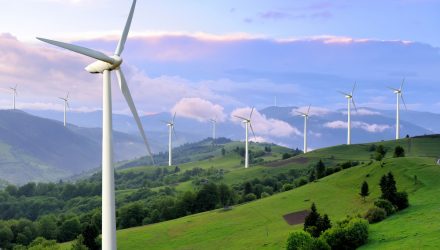The war in Ukraine has accelerated stress in the energy markets. It appears that significantly higher energy prices will be with us for some time. The energy crisis is impacting traditional oil and gas markets, as well as highlighting the companies shifting to cleaner and more sustainable technologies.
In the upcoming webcast, Capitalizing on the Clean Energy Transition, managing directors, portfolio managers, and senior research analysts at Duff & Phelps Investment Management Co. Benjamin Bielawski, Eric Fogarty, and Rodney Clayton will discuss the investment case for energy markets, with a focus on clean energy.
Specifically, the Virtus Duff & Phelps Clean Energy ETF (NYSE: VCLN), the first ETF strategy managed by Duff & Phelps, seeks attractive total returns by investing globally in a portfolio of clean, renewable, and sustainable companies and technologies that will power future energy needs. Actively managed, VCLN focuses on well-positioned market leaders at the forefront of clean energy innovation and commercialization.
Duff & Phelps Investment Management pursues specialized investment strategies with exceptional depth of resources and expertise. Since its earliest beginnings, providing research and analysis of income-producing securities to Depression-era investors, the firm’s attention has been set on identifying attractive opportunities through active management and fundamental research while managing the associated risks. Today, building on a distinguished legacy, Duff & Phelps has earned a reputation as a leader in investing in Global Listed Infrastructure, Global Listed Real Estate, Clean Energy, and Diversified Real Assets.
VCLN’s investment process contrasts favorably with passive clean energy indexes’ less-defined investment processes, which are often driven by market capitalization and clean energy exposure scores derived from static, sometimes opaque, criteria. By contrast, the Duff & Phelps active investment management approach is more comprehensive than those of its passive competitors, resulting in a high-conviction stock portfolio with a more balanced risk profile.
“The path on the global energy transition was never going to be linear. But the attraction of this necessary global long-term capital replacement cycle has arguably increased. We see decades of growth ahead driven by strong policy support, private-sector demand, the economics of clean energy, and now, a greater strategic need for energy independence,” according to Virtus.
Financial advisors who are interested in learning more about the clean energy transition can register for the Thursday, June 9 webcast here.








